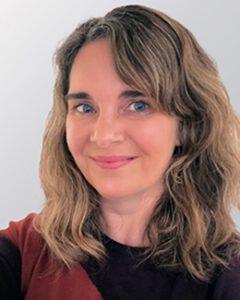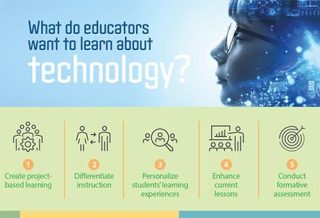IDEAS
Educator’s professional learning transforms Texas school
By Jefna M. Cohen
Categories: Data, Early education, Learning communities, School leadershipJune 2023
When Noline Martin became assistant principal at Thurgood Marshall Elementary, a pre-K-6 school in Richardson, Texas, in 2017, the school was working its way up from being declared a failing campus two years earlier. It had recently improved to a “met standard” rating, but Martin knew the school could do more to help its students. Her experience with the Learning Forward Academy led her to revamp the school’s approach to literacy, and now the school’s rank has risen to a B, according to the newer letter-based ranking system that began in 2019.
Thurgood Marshall is a diverse, Title I school with 514 students from 21 countries speaking 18 different languages. The campus is 98% economically disadvantaged, with 33% of students being English learners, mainly from the Middle East and Africa. About a third of the students moves schools each year, making it a challenge to support student growth over the long term.
Martin was troubled by the fact that only 19% of the school’s 3rd graders were reading on grade level. A statistic she had read had stuck with her: Kids who can’t read in 3rd grade are much less likely to graduate from high school. She knew what that would mean for students like hers. “As an immigrant, I know what it is to have the American dream, and with those numbers, I knew a lot of these immigrant families weren’t going to achieve it,” she says. “I’m from a third-world country, and I’ve always been told education is the way out. I couldn’t believe I was in America and kids couldn’t read.”
In 2018, Martin started looking for professional growth opportunities to enhance her ability to help her students, especially in literacy. “I knew there was a problem that I wanted to do something about, and I didn’t have all the tools,” she says.
When a colleague told her about the Learning Forward Academy, an intensive learning experience for midcareer professionals, she was immediately interested. It was not a small commitment, however. It required participation in a 2½-year program and came with costs for tuition and travel.
Martin asked her principal for the time and coverage to take part in the Academy. The principal agreed but lacked the funding to support her financially. “I knew there was no money at the school to pay for it,” she says, “but I was willing to do whatever I had to do to be part of it.”
When Martin learned that the Learning Forward Foundation offers scholarships to the Academy, she applied. The foundation awarded her the Patsy Hochman Grant, which provided full tuition, “because of her innovative ideas, unstoppable attitude, and valuable contributions to the profession.”
Soon after, an article in The Learning Professional noted her award, and this caught the attention of her district’s office of professional learning. That led the district to pick up her airfare for the in-person convenings that are essential to the Academy experience. It also helped set the district on a path to improving student achievement through high-quality professional learning.
A clear focus on literacy
At the core of Learning Forward’s Academy is an individualized problem of practice. Each participant identifies and works through a problem of practice they’re encountering in their school, develops professional learning solutions to address it, and learns to assess the impact of those solutions. Martin immediately identified literacy as her area of focus.
She decided to tackle literacy by building the capacity of teachers in grades K-2. She had noticed more attention being paid to grades 3-6, and she believed that the problems in the upper grades stem from the foundational years of early elementary school. “Whatever happens in kindergarten, 1st, and 2nd grade … we see the fruits in 3rd grade. And if there are things that should happen that didn’t happen, then we’re playing a lot of catch-up in 3rd grade. [So] my problem of practice was to increase the percentage of students who are proficient readers by the time they end 3rd grade.”
Martin’s work to improve her school’s literacy approaches began with using Learning Forward’s Standards Assessment Inventory (SAI). The SAI is an anonymous, web-based assessment that measures whether a school or district is implementing the content, processes, and conditions for professional learning in ways that lead to high impact. (To learn more about the SAI, click here.)
She administered the assessment tool to 26 classroom teachers in kindergarten to 6th grade and analyzed the results, using Learning Forward’s online platform. Martin considers the opportunity to learn about and use the SAI one of the most beneficial things about the Academy. “I was able to get a real feel for what teachers knew about professional learning and what they thought about it,” she says.
What kind of professional learning do teachers want? Ask! This assistant principal found teachers wanted to learn from each other and to select learning based on personal growth goals. Students benefitted. #Principals #ProfDev Click To TweetShe and her principal examined the SAI results, which included teacher and student data as well as teacher interest. The learning designs section of the SAI revealed that teachers wanted to learn more from each other, and they also wanted to be able to choose some of their professional learning sessions based on personal growth goals. The two then formulated a professional learning plan.
Conference-style learning
The redesigned professional learning plan started with a conference-style model with a mix of choice and required breakout sessions to kick off the 2021-22 school year.
During the conference, Martin and her principal ran concurrent sessions that teachers selected based on their interests and needs. The sessions included content across the curriculum, as well as technology options and even a session on oral language for English learners.
Some sessions were required for teachers, tailored to teachers’ experience levels, or based on teacher observation data. For example, new teachers attended sessions on model lessons and time management, while sessions for experienced teachers focused on honing their craft, such as writing across the curriculum or higher-order thinking skills.
Professional learning is not one-size-fits-all. Teachers in different career stages are working on different aspects of their practice. Conference-style concurrent sessions is one way to differentiate learning. #TheLearningPro… Click To TweetProfessional learning is not a one-size-fits-all endeavor, and Martin understands that teachers in different career stages are working on different aspects of their practice. The conference format is one way to meet this variety of needs, and it’s now how they implement professional learning at least twice annually on that campus.
Based on her learning in the Academy, Martin and her principal built on the conference with professional learning throughout the school year. For example, inspired by her own experience discussing professional learning readings and resources with other Academy members, Martin started a book study with the K-3 teachers to develop professional learning communities (PLCs) in her school. After that, she set up a literacy PLC on a nine-week cycle.
With this format, teachers can test strategies and materials right away to see if something works. “I just love the fact that people’s doors aren’t closed and they’re talking,” she says of the PLCs. Next, Martin will work with grade 4-6 teachers to develop their own book study.
Martin also organized a vertical PLC, creating time for teachers across the grades to look at reading data together, analyze it, discuss patterns, look for problem spots, and identify changes in practice to try.
Throughout, Martin has led data collection and analysis efforts, both to assess impact and determine next steps. “Going through the [Academy] process at Learning Forward taught me a lot about data,” she says. “I don’t just look at quantitative data. I also look at qualitative data. I look at teacher data, I look at student data, I look at feelings and aspirations. I look at all of those things.” And she’s teaching her teachers to do the same.
After examining the data, Martin asks her teachers, “So what can we do collectively as readers, reading teachers, and lead learners to attack this particular problem?” She says this has led to important shifts in practice. “There’s so much power when a 1st-grade teacher can talk to a 5th-grade teacher,” she says.
Data can drive change. ''I don’t just look at quantitative data. I also look at qualitative data. I look at teacher data…student data…all of those things.'' - Noline Martin #EdData Click To TweetSchool rating improves
Less than three years later, Martin is already seeing the results of her work, not just in her day-to-day interactions, but in the data. Last year, Thurgood Marshall earned a B rating, up from a C rating in 2019. “When I say a B, I mean a high B. We got an 87,” Martin says. This kind of progress is possible only with staff-wide buy-in, and the victory belongs to everyone. “That score made the kids so excited. We had a big celebration when we came back to school. The kids were saying, ‘Ms. Martin, we just need three more points (to get to an A rating)!’ ”
Additionally, once the school returned to in-person learning after the pandemic necessitated a shift to remote learning, it began a new practice of student goal-setting. For the last two years in a row, over 83% of Thurgood Marshall’s 3rd graders met or exceeded the school’s growth goals in reading, which puts the school in the 99th percentile ranking for growth by Northwest Evaluation Association’s (NWEA) grade-level norms.
This means students know where they are, estimate their progress, and set their own goals they know will require work but are also attainable. Thurgood Marshall uses NWEA’s Measure of Academic Progress (MAP) Reading to measure a student’s academic growth and proficiency three times each year. They gather the baseline in September, monitor progress in January, and do the final assessment in May of each year.
School culture has changed, too. One day, two 2nd-graders ran up to Martin in the hallway, proudly boasting about their reading level progress. They told her she had to come listen to them read. “Those are the kind of things that never used to happen that are happening now,” Martin says, adding, “My No. 1 goal is to get kids into reading, and I’m starting to see the fruits of it.”
In the past, Martin wanted to do a schoolwide reading challenge but didn’t feel there were enough kids who were excited about reading to make it successful. Now, she says, she feels confident the school can do the challenge next year.
The school’s turnaround has earned some local notice, and other teachers and administrators have come to tour the building to see what’s going on.
‘I’m still learning’
Martin says she is grateful for her work with Learning Forward. “All the different protocols and systems I am learning, I am able to use. That’s really good professional development. I use them every day. I’m applying the tools to my problem of practice, and I’m sharing that with my staff. These are invaluable experiences that I’m having.”
Martin says one of the most important things she has learned in the Academy is the real meaning of effective professional learning. It “has to be continuous, it has to be measured, and it has to be evaluated to make sure you’re getting the result you are looking for,” she says. “It should take place during the school day. Just because someone went to a professional learning session doesn’t mean they know it or how to implement it. At 4 o’clock, when you’re tired and you’ve had a rough day, you’re just sitting there to comply.”
Martin and her Academy cohort will graduate this December at Learning Forward’s Annual Conference near Washington, D.C. They will be the 30th class to graduate and spread their knowledge to schools, districts, states, and provinces in the U.S., Canada, and beyond. While Martin is sad about the experience ending, she knows her learning will be ongoing. “As long as I’m around, I’m going to be a member of Learning Forward because this is the best PD I’ve ever gotten. And I’m still learning.”
Quality professional learning “has to be continuous, it has to be measured, and it has to be evaluated to make sure you’re getting the result you are looking for.” And, it should take place during the school day. #StudentSuccess… Click To Tweet
About the Learning Forward Academy
The Learning Forward Academy is Learning Forward’s flagship deep learning experience, committed to increasing educator and leader capacity and improving results for students in the ever-changing landscape of education. For over 30 years, the Academy has supported the problem-based learning of teachers, teacher leaders, instructional coaches, principals, regional leaders, superintendents, and others whose jobs involve supporting the learning of other adults and students.
Every year, educators from around the world form an academy cohort and engage in learning together to align a problem of practice to cutting-edge, equity-centered professional learning standards that incorporate evidence from research and practice about critical topics for educators. This includes culturally sustaining instruction, social and emotional learning, and personalized learning.
The 2½-year experience includes five in-person learning sessions totaling 10 days and continues with four virtual learning events, as well as registration for three of Learning Forward’s Annual Conferences. To learn more about the Academy, visit learningforward.org/academy/. Applications for the 2025 cohort are closed.
About the Learning Forward Foundation
The Learning Forward Foundation raises funds for awarding grants and scholarships for educators who desire to gain knowledge and skills in professional learning to lead change actions that result in equity and excellence in teaching and learning. Learn more about the Foundation at foundation.learningforward.org/.

Jefna M. Cohen is associate editor at Learning Forward.
Categories: Data, Early education, Learning communities, School leadership
Recent Issues
EVALUATING PROFESSIONAL LEARNING
February 2024
How do you know your professional learning is working? This issue digs...
TAKING THE NEXT STEP
December 2023
Professional learning can open up new roles and challenges and help...
REACHING ALL LEARNERS
October 2023
Both special education and general education teachers need support to help...
THE TIME DILEMMA
August 2023
Prioritizing professional learning time is an investment in educators and...











